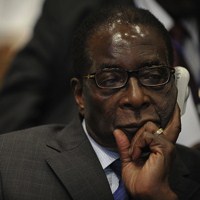Zimbabwe’s political and economic decline since 2000 has been a major preoccupation for South African policymakers, severely testing Pretoria’s ability to juggle often contradictory narratives in its foreign policy discourse: on one hand, a commitment to democracy and human rights, and on the other, liberation solidarity, the promotion of an African consensus and a residual anti-Western sentiment in the ruling African National Congress (ANC).
With Zimbabwe now on the cusp of fresh elections, this issue is set to return to the top of the South African agenda. The elections will take place under a new constitution overwhelmingly endorsed by Zimbabwean voters in a March referendum. If respected, the constitution provides for a scaling down of presidential power and the possibility of a democratic advance. Progress will be confirmed if the upcoming election allows a genuine expression of the popular will. Zimbabwe can then finally move into a postcrisis era, and South Africa will be removed from the horns of a policy dilemma on which it has been impaled for 13 years.
Unfortunately, such a benign scenario seems improbable, and the peaceful atmosphere surrounding the constitutional referendum gives little insight into the likely conduct of the upcoming election campaign. Both the ruling Zimbabwe African National Union-Patriotic Front (ZANU-PF) party under President Robert Mugabe and its main challenger, the Movement for Democratic Change (MDC), had campaigned for a “yes” vote on the constitution, thus reducing the stakes and lowering the political temperature of the referendum. By contrast, the election will see heightened tensions, and there is little basis for optimism that ZANU-PF will allow a free and fair vote. No Zimbabwean election since 1980 has been free of intimidation, with the nadir reached in 2008, when a campaign of state terror bludgeoned Mugabe back into power. While the referendum raised the prospect of a new political dynamic in the country, a more accurate foreshadowing of the upcoming election is provided by the ongoing state harassment of civil society and opposition activists. The formal start of campaigning will certainly see that intimidation intensify and spread.

